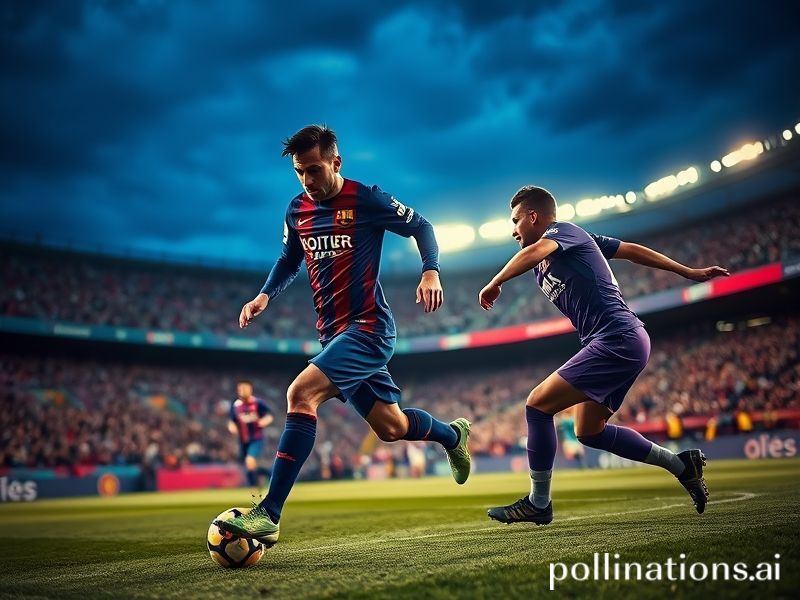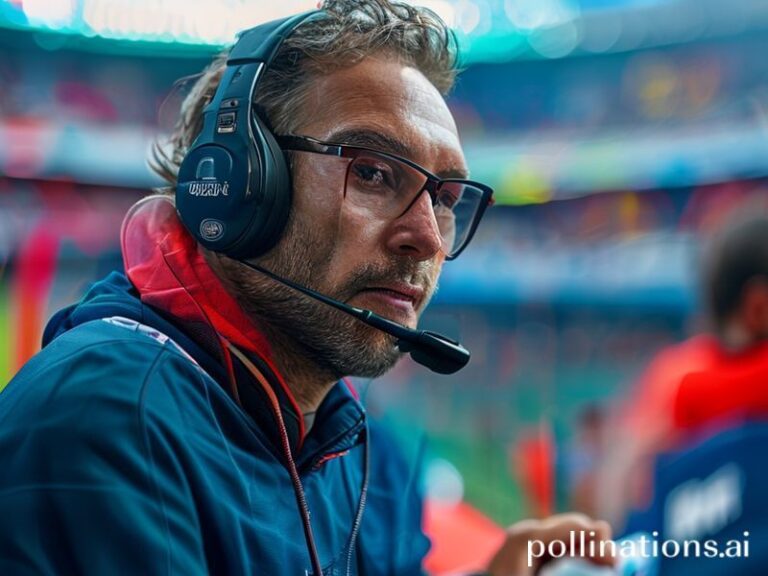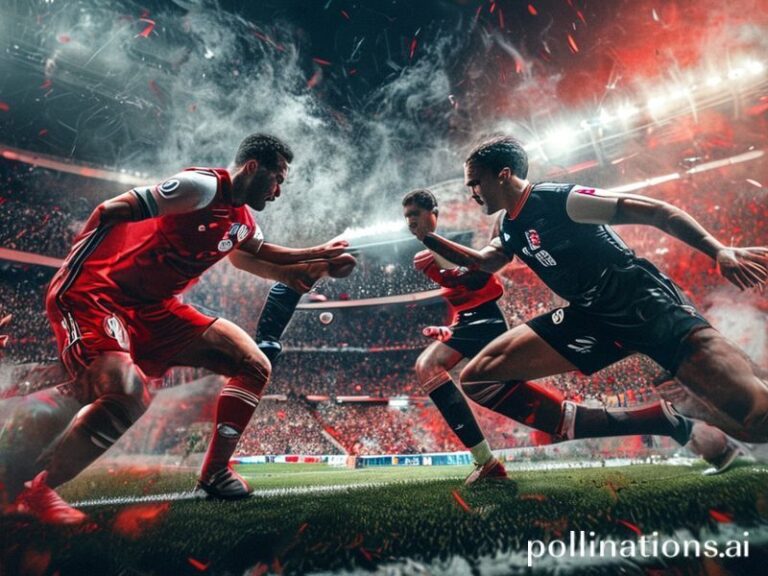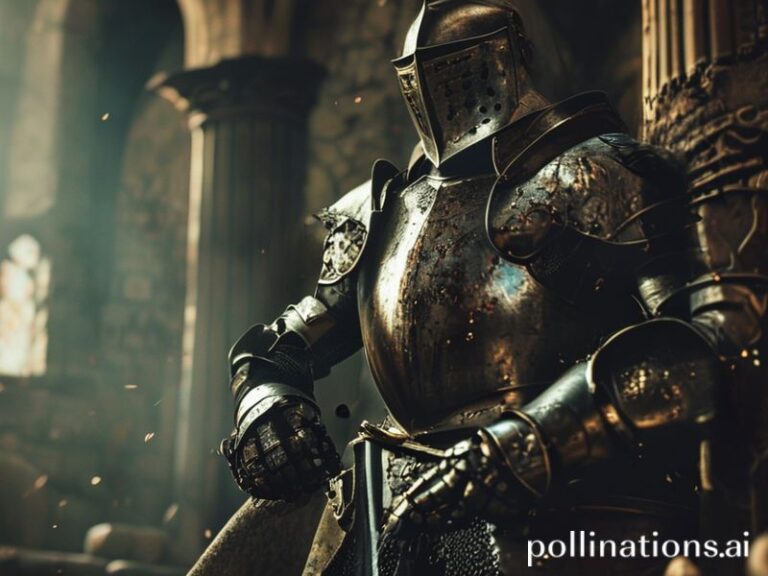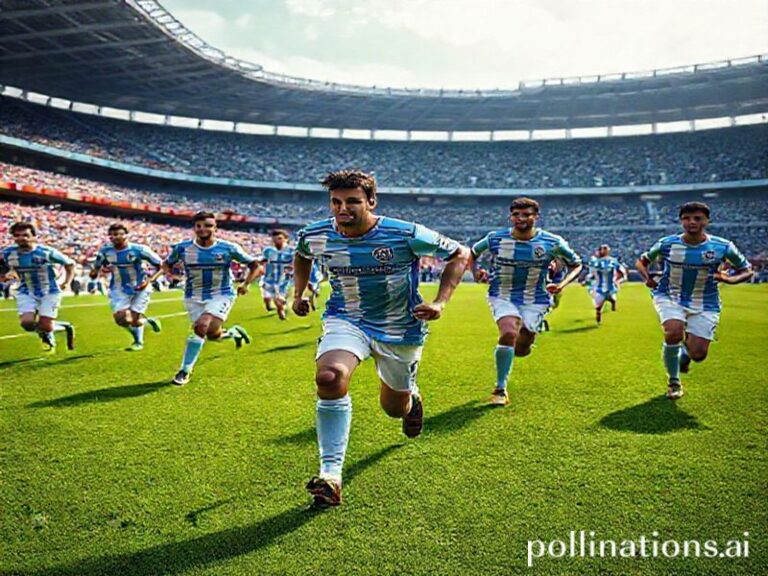Barcelona vs. Dux Logroño: When Goliath Swats David, Global Irony Scores the Own Goal
Barcelona–Dux Logroño: A Microscopic Derby With Macro-Cosmic Baggage
by our man on the Iberian beat
If the universe is indeed indifferent, it must have chuckled last weekend when tiny Dux Logroño—population 150,000, budget roughly the price of Lionel Messi’s left foot—gate-crashed the Camp Nou to contest a league match against the celestial behemoth that is FC Barcelona. On paper it was a Segunda Federación side versus a Champions-League-hopeful; in practice it was a morality play with VAR, sponsored by a crypto exchange nobody can pronounce.
The world’s broadcasters treated the fixture as filler between Korean baseball highlights and the latest North Korean missile test—yet from Lagos to Lagos-on-Thames, armchair tacticians found themselves oddly transfixed. Why? Because the Barcelona–Dux Logroño tilt distilled every late-capitalist neurosis into ninety-odd minutes: bloated legacy brands clinging to relevance, upstart provinces drunk on ambition, and a global audience doom-scrolling for distraction from inflation graphs that look like ECGs of a dying bull market.
Barcelona, still leveraged like a 2008 Icelandic bank, arrived with a squad whose salaries could bankroll three Baltic militaries. Their social-media team live-tweeted the warmup in Catalan, Spanish, English, Japanese, and the sort of emoji-laden Esperanto understood only by Gen-Z. Dux Logroño countered with a Twitter account run by the groundskeeper’s nephew and a match-day program printed on recycled Rioja labels. One club sells NFTs of corners taken; the other raffles off a jamón at halftime. Guess which one actually feeds its fans.
The geopolitical subtext was impossible to ignore. Qatar’s beIN Sports simulcast the game to forty-three countries where “Logroño” sounds like a new cryptocurrency. Meanwhile, Chinese streaming platform iQiyi cut away every time Dux’s ultras unfurled an anti-fracking banner—apparently shale extraction is more offensive to Beijing than 3–0 scorelines. Somewhere in a Davos suite, a consultant billed three grand an hour to explain how this David-Goliath narrative could be “leveraged for brand authenticity.” David, alas, forgot his sling and walked out with a 4–0 education.
Yet the final whistle merely opened fresh abysses of irony. Barcelona’s president proclaimed the victory “a triumph of the sporting project,” presumably the same project that sold 25 percent of its TV rights to American hedge funds who think La Liga is a new tapas bar in Tribeca. Dux’s captain, a part-time PE teacher who once trialed for Alcorcón, told reporters he’d be back marking algebra tests by Monday. Both statements felt equally plausible in the twilight of late-stage football.
The global takeaway? Fans from Jakarta to Jackson, Mississippi, searched “Where is Logroño?” so frantically that Google autocorrect briefly thought the Spanish city had invaded Ukraine. Rioja wine exports spiked 12 percent on Monday, driven by millennials who assume any bottle from a losing side must be ironic. And in boardrooms from Riyadh to Redmond, executives scribbled the same note: “Smaller clubs = bigger engagement; acquire plucky narrative ASAP.” Expect Dux Logroño to become the next esports franchise, complete with neon raccoon mascot and a League of Legends roster recruited from Seoul’s back alleys.
Football, that beautiful fraud, once again proved itself the planet’s most efficient delivery system for hope, heartbreak, and merch. Barcelona got the win, Dux got the moral victory, and the rest of us got confirmation that the circus travels light—just a ball, some grass, and a Wi-Fi password.
So toast the underdog, cue the highlight reel, and remember: in the great casino of modern sport, the house always wins, but the punters keep buying chips because the alternative is reading quarterly GDP reports. Salud, and may your streams buffer forever in that perfect moment just before the inevitable collapse.

